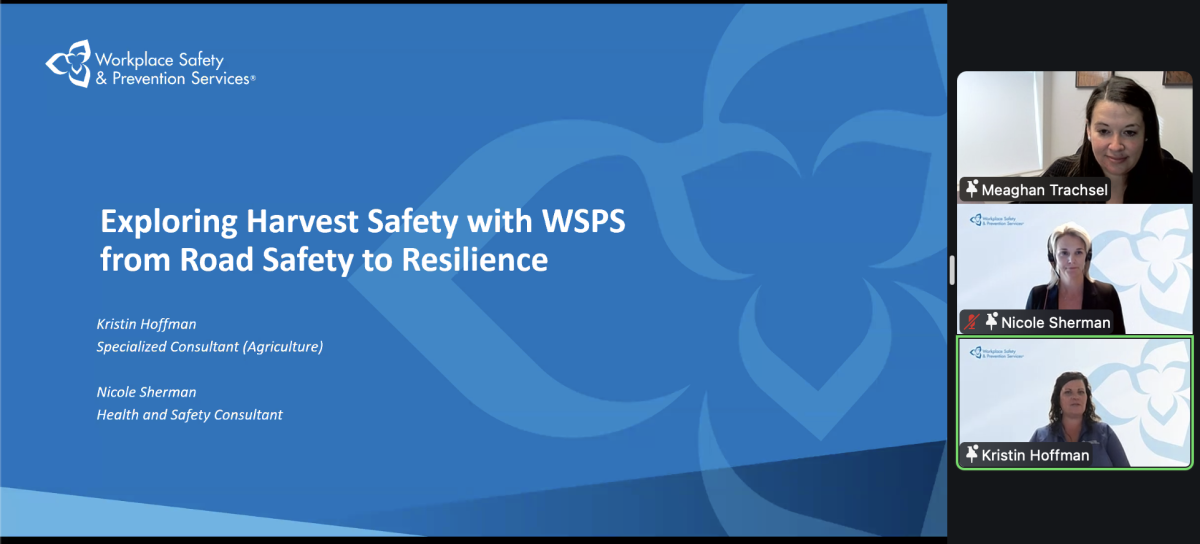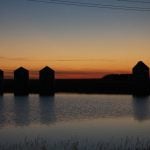Manitoba farmers will no longer be allowed to apply fertilizers near rivers, lakes, wetlands, streams or drains starting next year.
The provincial government on Tuesday announced new regulations not only for farms but for wastewater treatment plants, golf courses, parks and homeowners.
The regulation also puts new limits on development of septic fields, manure storage facilities and sewage treatment plants in areas deemed “environmentally sensitive.”
The regulation, starting next year, creates a buffer zone of at least three metres along all waterways in the province. Within those zones, farmers, homeowners and park and golf course groundskeepers will no longer be allowed to apply fertilizers.
Read Also

Exploring Harvest Safety
Kristin Hoffman of WSPS explains measures for increased farm safety around harvest season
Along “vulnerable” rivers that are also drinking water sources, including the Red and Assiniboine rivers, as well as along lakes not considered vulnerable, the buffer zone will be 15 metres. Around “vulnerable” lakes and reservoirs including Lake Winnipeg and Lake Manitoba, the buffer will be 30 metres.
For areas not covered in permanent vegetation, the buffer zones increase to eight metres along all waterways, 20 metres along “vulernable” streams, rivers and creeks as well as all lakes, and 35 metres along “vulnerable” lakes and reservoirs.
The regulations will also block the siting of confined livestock operations, manure storage pits, outhouses (without a composting pit or holding tank) and sewage and wastewater treatment facilities in the buffer zones or in water quality management zone “N4.”
“Along with livestock and grain producers, other Manitobans such as cottagers and golf course owners will have clear regulations to guide how nutrients can be applied to land to better protect water quality,” provincial Water Stewardship Minister Christine Melnick said in a release.
Later this spring, further restrictions will be announced for the use of lawn fertilizers, she said.
“Unfairly blaming”
The announcement follows the provincial government’s move earlier this month to block new or expanded hog operations in the province’s southeast, Interlake and Red River Valley regions, citing the environmental sensitivity of the area. The Red River flows northward directly into Lake Winnipeg.
The Manitoba Pork Council, Keystone Agricultural Producers (KAP) and Manitoba Chambers of Commerce on Tuesday called on the province to overturn its moratorium on hog industry development in those areas. The groups said the provincial government is “unfairly blaming hog farmers for the
environmental problems of Lake Winnipeg and it must stop.”
“This is completely unfair to farm families who are already working hard to protect the environment by
following all of the provincial regulations and guidelines,” said MPC chairman Karl Kynoch, who farms at Baldur, outside the affected areas. “A permanent ban on hog barns will
ultimately lead to the decline of the hog sector in Manitoba, which was once viewed as a provincial
success story.”
Manitoba is Canada’s third-largest hog producing province after Ontario and Quebec, at 23.6 per cent of Canadian production in 2006.
The provincial government’s moratorium had followed the release of the provincial Clean Environment Commission’s report on the environmental sustainability of Manitoba’s hog industry. None of the report’s recommendations called for this moratorium, the groups noted.
“The report cost taxpayers almost $750,000 and (Conservation Minister Stan Struthers) seems to have ignored its conclusions,” the groups said.
“This ban not only puts one of Manitoba’s agricultural sectors in jeopardy, (it) is a threat to all of us in agriculture,” said KAP president Ian Wishart in the pork council’s release.
“A moratorium is not the answer, and we believe the government should lift the ban and start working with farmers to find a more reasonable and effective approach.”















